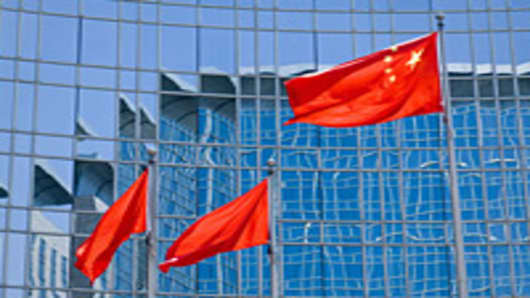Investors hoping for more stimulus measures from China to boost its slowing economy may have to wait a little longer.
Analysts say Beijing is unlikely to take any action until after the Communist party holds its congress on November 8, an event that is particularly significant this year because it will mark a once-in-a-decade leadership change.
As recently as Friday, talk that China would unveil fresh stimulus measures ahead of the Golden Week holidays abounded, boosting risk assets such as gold prices as well as the battered Shanghai stock market. Chinese markets are closed all week to celebrate its National Day on October 1.
While markets were again left disappointed after no measures were unveiled on Friday, weak economic data is likely to keep alive speculation of economic stimulus measures from China, which for many analysts are a question of time. An official survey of factory managers released on Monday showed the manufacturing sector remains in contraction.
But with politics at the forefront given the leadership change, any further measures are likely to come after November 8, analysts said.
“This is an important transition period,” Vasu Menon, vice president of wealth management at OCBC Bank in Singapore, told CNBC. “Yes, data is still weak but they will wait for more data. They already have announced a lot of measures and these take time to work through the system. So I don’t expect anything dramatic before the congress.”
China has already implemented a slew of stimulus measures since the end of November 2011, including two interest rate cuts and three reductions in lenders’ reserve requirement ratios (RRR). Last month, authorities approved about one trillion yuan ($159 billion) of infrastructure projects and introduced policies to help exporters, such as speeding up tax rebates and granting more loans to the sector.
However, recent weak data, such as industrial output for August that fell to a 39-month low, has added to calls for the Chinese government to do more to rev up the economy.
Tim Condon, head of research for Asia with ING Financial Markets predicts that any fresh moves will not come before the first quarter of 2013.
“They’re (the People’s Bank of China) watching the situation very carefully,” he said. “I don’t think we’re going to see much easing this year. In fact, I think we have to wait till March before the authorities in China declare victory on the problems they’ve got …and decide if it’s possible to ease policy.”
Last week, the People’s Bank of China did away with the need for more easing in the form of an RRR cut after it injected a net 365 billion yuan ($58 billion) into money markets, the largest weekly injection in history, and temporarily boosting sentiment in the market ahead of the holiday.
Boost for Exporters?
When the government does decide to move on new measures, exporters will likely benefit, according to Alan Lam, Bank Julius Baer’s China Strategist.
The sector is a key engine of the Chinese economy, accounting for about 25 percent of GDP and supporting an estimated 200 million jobs. This year, the sector has languished as orders from China’s biggest market Europe slows. In August, exports grew 2.7 percent year-on-year, below the 3 percent forecast in a Reuters poll.
“It’s really unclear what’s going to happen now,” Lam said. “The milestone is really the end of the year after the congress but I think jobs is a definite priority and that means they will help exporters.”
Some analysts recommend further monetary easing, on top of the cuts that have already been made by the central bank.
“When it comes to China, you don’t only need to make money cheaper via interest rate cuts, you have to provide more of it,” David Forrester, senior vice president, G10 Forex Strategy with Macquarie told CNBC Asia’s “Squawk Box”.“We need to see triple-R cuts. We expect two more, and another interest rate cut.”
—By CNBC’s Jean Chua.


